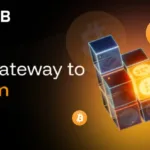Ethereum’s builders have accepted a plan to elevate the community’s fuel restrict to 60 million through the impending Fusaka improve.
On Sept. 25, Ethereum Basis contributor Tim Beiko confirmed that the choice was reached through the All Core Devs Execution (ACDE) #221 name.
He additionally revealed that Fusaka’s testnet activations will start in October, with a mainnet launch anticipated quickly after. Notably, the builders had beforehand tentatively scheduled the replace for December.
In the meantime, these choices sign a coordinated try to spice up the amount of transactions processed in every block as demand for block house grows.
Former Galaxy Digital researcher Christine Kim described the timing as “a formidable elevate,” noting that builders anticipate Fusaka to ship a 33% enhance in Layer-1 efficiency alongside a 133% improve in Layer-2 capability earlier than the top of the yr.
Gasoline restrict improve
The approaching fuel restrict improve isn’t Ethereum’s first revision of the yr.
The brink climbed to roughly 36 million models in February, then to 45 million in July.
So, Fusaka’s proposed 60 million restrict would mark the third improve in 2025, underlining how scaling stays central to the mission’s roadmap.
Gasoline on Ethereum measures the computational energy wanted to execute on-chain actions, resembling sending tokens, swapping belongings, or deploying contracts.
In response to Everstake, a number one staking supplier, increased fuel limits allow “extra transactions per block, increased throughput, and higher effectivity” throughout each Layer-1 and Layer-2 techniques.
It added that when a majority of validators, a minimum of 50%, sign approval, the brand new cap can be activated robotically below Ethereum’s consensus guidelines. Already, knowledge from Gaslimits reveals that 17% of the blockchain community validators assist growing the restrict to 60 million.
Nevertheless, any potential adjustment isn’t with out controversy.
Some group members, together with Ethereum co-founder Vitalik Buterin, have lengthy supported gradual will increase to ease congestion.
Alternatively, some warning that pushing limits too excessive or rapidly may place heavier hundreds on nodes. In response to them, this might widen the hole between skilled validators and smaller contributors.








